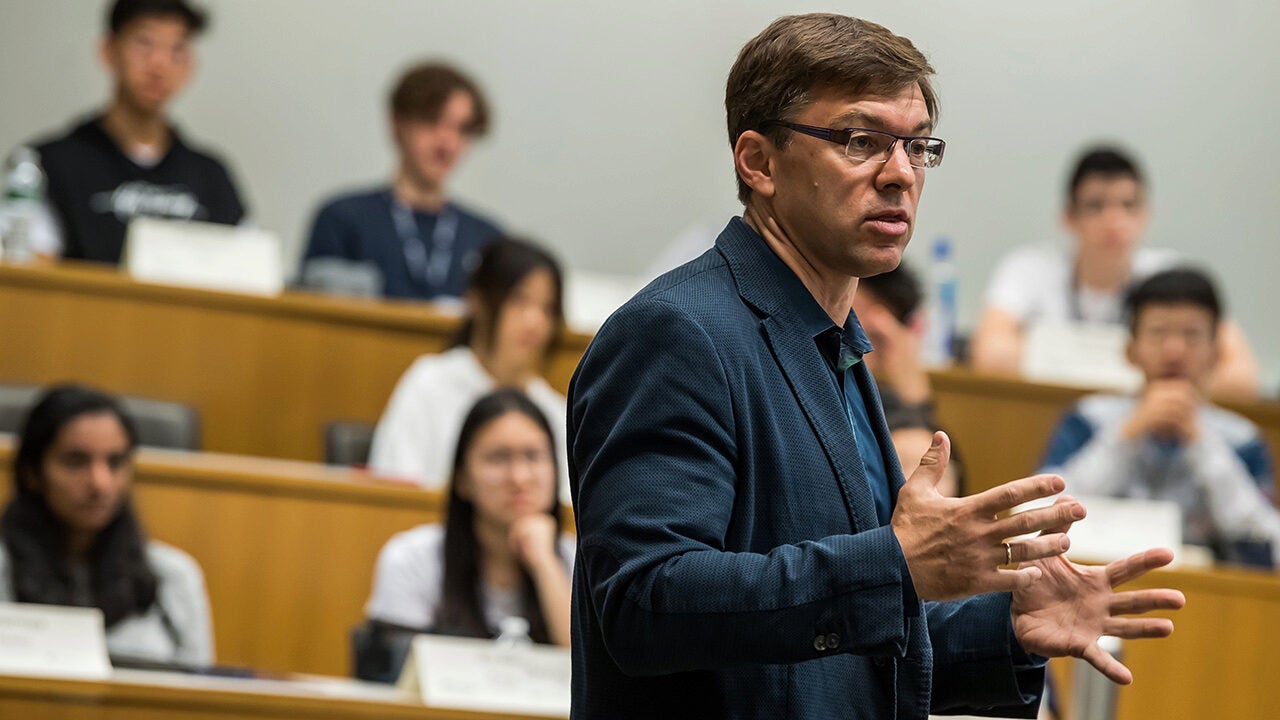Career Insight: Serguei Netessine on the Importance of Thinking Globally


Serguei Netessine, the Dhirubhai Ambani Professor of Entrepreneurship and Innovation at the Wharton School, is also vice dean for global initiatives. In that role, he coordinates Wharton academic activities abroad, as well as works with the school’s extensive global alumni network and partner organizations around the world. Netessine recently spoke with the Wharton Global Youth Program about why he believes it’s important to think globally and build leadership skills to grow economies, organizations and opportunities that transcend borders. Here, he shares his insight.
“The globalization trend is real. In the corporate world, companies have long realized that competition can come from abroad, that global expansion is often difficult and that cross-cultural barriers are hard to overcome. Moreover, for Apple, 58% of revenues come from abroad, for Google it is 54%, for Microsoft 49% and for Facebook it is 57%. Even great American tech companies are not just “American” anymore. This is why leading companies increasingly demand their employees to be globally minded, and this is why business schools (and colleges in general) must respond by adjusting their curricula. Another reason to be interested in global businesses is because innovation can happen in any part of the world, and you can learn a lot by looking at business models developed elsewhere. Fintech [financial technology] is far more developed in China than in the U.S., and most drones in the world are manufactured by DJI, also a Chinese company.
There are many ways to begin to prepare yourself for the global mindset: start by learning a second language. Speaking more than one language has many proven benefits, including improvement of cognitive functions of the brain. Beyond that, participate in a school trip abroad, read international magazines and watch international news channels. Or you can simply meet people from other cultures! This might be easier to do by enrolling in the IB (international baccalaureate) program in your school. Close to 2,000 schools in the U.S. offer an IB curriculum, and this number is growing fast.”
How are you developing a global perspective? Share your insights in the comment section of this article.
What is globalization? Using the related KWHS articles and links, prepare a list of 10 key aspects of globalization and discuss them with your group or your class. Together, agree upon the official Top 10 Globalization Trends list.
Comments are closed.
Netessine’s promotion of cultivating a global mindset resonates profoundly in today’s interconnected world. Companies like Apple and Google illustrate how understanding diverse cultures and business models isn’t simply advantageous—it’s imperative for driving success and fostering innovation in our global economy. In this era, globalization isn’t only an opportunity; it’s a fundamental requirement for thriving in the modern business landscape. Actively seeking international exposure through language, culture, and meaningful interactions is essential for navigating the challenges of our interconnected global environment.
Netessine’s comparison of fintech progress between China and the U.S. offers a compelling case study. It illuminates the valuable insights we can glean from different countries’ approaches to technology and business. Engaging deeply with diverse cultural and business practices not only broadens our perspectives but also ignites innovative thinking crucial for both local advancements and future multinational collaborations.
In today’s competitive job market, we need experiences that cultivate a well-rounded, globally aware mindset. This mindset is not only essential for personal growth but also indispensable for shaping a future where diverse perspectives are not just acknowledged but celebrated and integrated into every facet of life.
My journey towards a broader global perspective began with my participation in Model United Nations (MUN). Through MUN simulations, I have transcended my Salvadoran identity to embody various nations with distinct ideals and challenges. Collaboratively working towards solutions that benefit the global community has underscored for me the power of embracing diverse perspectives and highlighted the critical role of international cooperation. This firsthand experience aligns perfectly with Netessine’s call for a global outlook, emphasizing not just understanding but also innovative application across diverse cultures and business models. Such a systemic approach is not merely a strategy for economic success but a framework for enriching every aspect of our interconnected world.